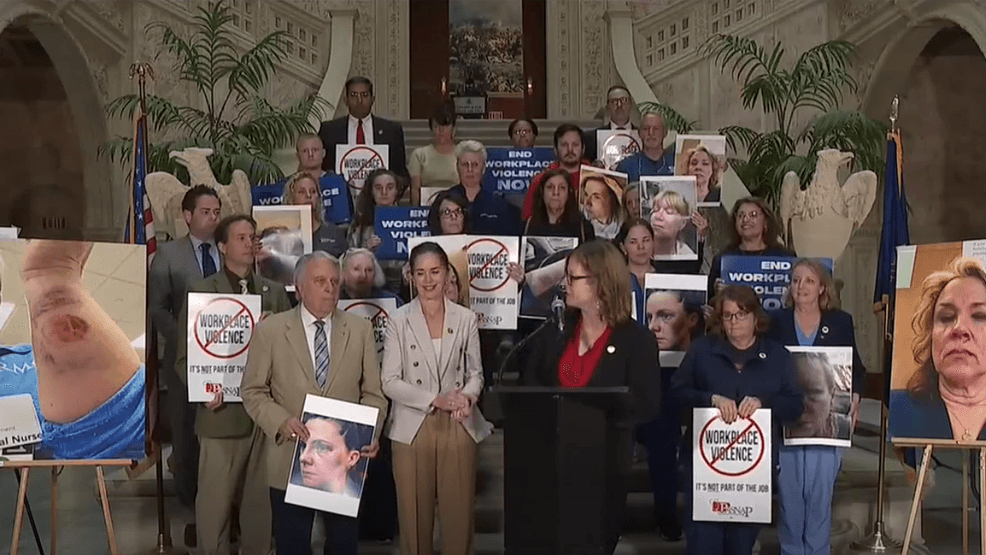The Healthcare Workplace Violence Prevention Act, a piece of legislation aimed at providing more security and safety for healthcare professionals at work, has passed the Pennsylvania House of Representatives with a bipartisan vote.
Nurses, Pennsylvania State Nurses Association (PSNA) members and other healthcare officials gathered at the Capitol Tuesday to speak out about the violence they’ve faced while at work.
“I walked in here feeling safer than I ever feel at work,” said registered nurse Lauren Harris.
The legislation now goes before the Senate, where if passed, it would require hospitals to establish workplace violence prevention committees and perform annual risk assessment reports.
PSNA detailed instances of violence that have happened at hospitals across the commonwealth and showed pictures of the injuries nurses sustained while on the job.
“She was kicked to the chest, choked to the point of unconsciousness and hospitalized,” said PSNA Chief Executive Officer Wayne E Reich Jr., describing one instance.
The bill would also require healthcare facilities to keep records and reports of violence. Healthcare workers said that at this moment, there is no mandatory rule in place that requires hospitals to report those incidents.
“There’s been times I’ve been assaulted that I didn’t do anything about it,” Harris said. “It was…what was the point? So, I can be told what I could’ve done differently…We’ll throw another training session at you?”
Those who oppose the bill said reporting the incidents doesn’t stop the violence.
“Another state agency coming in for regulatory, it’s just complete overkill, and at the end of the day, it’s not stopping the violence,” said Republican Representative Seth Grove.
The Democratic legislation said 22 Republicans voted in favor of the bill, but those who voted “no” said if the bill were to pass through the Senate, it would only add problems for hospitals already facing tough financial decisions.
“It sets fine fees, right of actions, huge costs, I think, for very little gain,” Grove said.
Grove told CBS 21 that that when he voted no on the bill, representatives offered an alternative that would address workplace safety and liability without going into the regulatory burden of hospitals that he said are already facing multiple constricting regulations.
According to the United States Bureau of Labor Statistics, healthcare workers accounted for 73% of all non-fatal workplace injuries and illnesses the last time the data was collected.
Reich said the reason a bill like this has not been put in place to protect healthcare workers is simple: “Hospitals don’t like to be told what to do, and I think hospitals might believe that they are doing everything that they can.”







